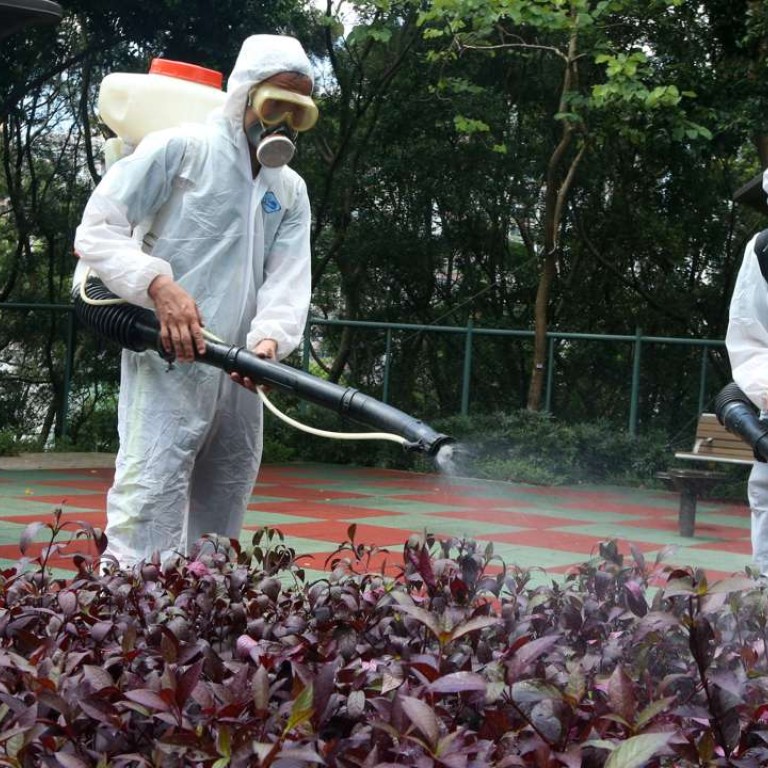
Stay alert for Zika risk, Hongkongers returning from Olympics are warned
Mosquitoes that can spread the disease pose a threat at seven black spots across the city
Hong Kong health officials on Tuesday urged travellers returning after the Rio Olympics to keep taking precautions against the Zika virus as mosquito activity in seven areas across the city have far exceeded the alert level.
Despite the overall index of activity dropping slightly last month, seven black spots remained high-risk zones for the disease, which spreads through mosquito bites. These areas are Tuen Mun North, Tin Hau, Deep Water Bay, Repulse Bay, Tsim Sha Tsui East, Yuen Chau Kok and Kai Tak North.
“We expect that travellers will be returning to town before the summer vacation ends, hence the risks of importation of these vector-borne diseases cannot be ignored,” a spokesman for the Food and Environmental Hygiene Department said.
“All sectors should step up efforts on mosquito control in the community.”
The government expected around 1,500 Hongkongers, including 30 athletes, would be returning from Brazil.

The department said it would continue intensive mosquito preventive and control exercises across the city. It has conducted a survey in 52 areas on the monthly ovitrap index for Aedes albopictus – an index to review the level of activities of a mosquito species that can spread Zika.
The result showed that the mosquito level for July dropped to 11.8 per cent from 13.5 per cent in June. But the seven black spots reached or exceeded the alert level of 20 per cent.
“Hot and rainy weather in summer is favourable for proliferation of mosquitoes. The community must remain vigilant and continue to take effective mosquito control measures,” the spokesman said.
Ten public clinics are ready to treat anyone who shows symptom of the disease upon their arrival. HKU has launched a voluntary screening programme for people who do not display any symptoms but want to test whether they are infected.
The World Health Organisation declared Zika a public health emergency in February, when the virus mainly affected Latin America and the Caribbean.
It causes a serious birth defect called microcephaly – an underdeveloped brain and small head. Those infected display flu-like symptoms such as mild fever, rash, joint pain and red eyes.

